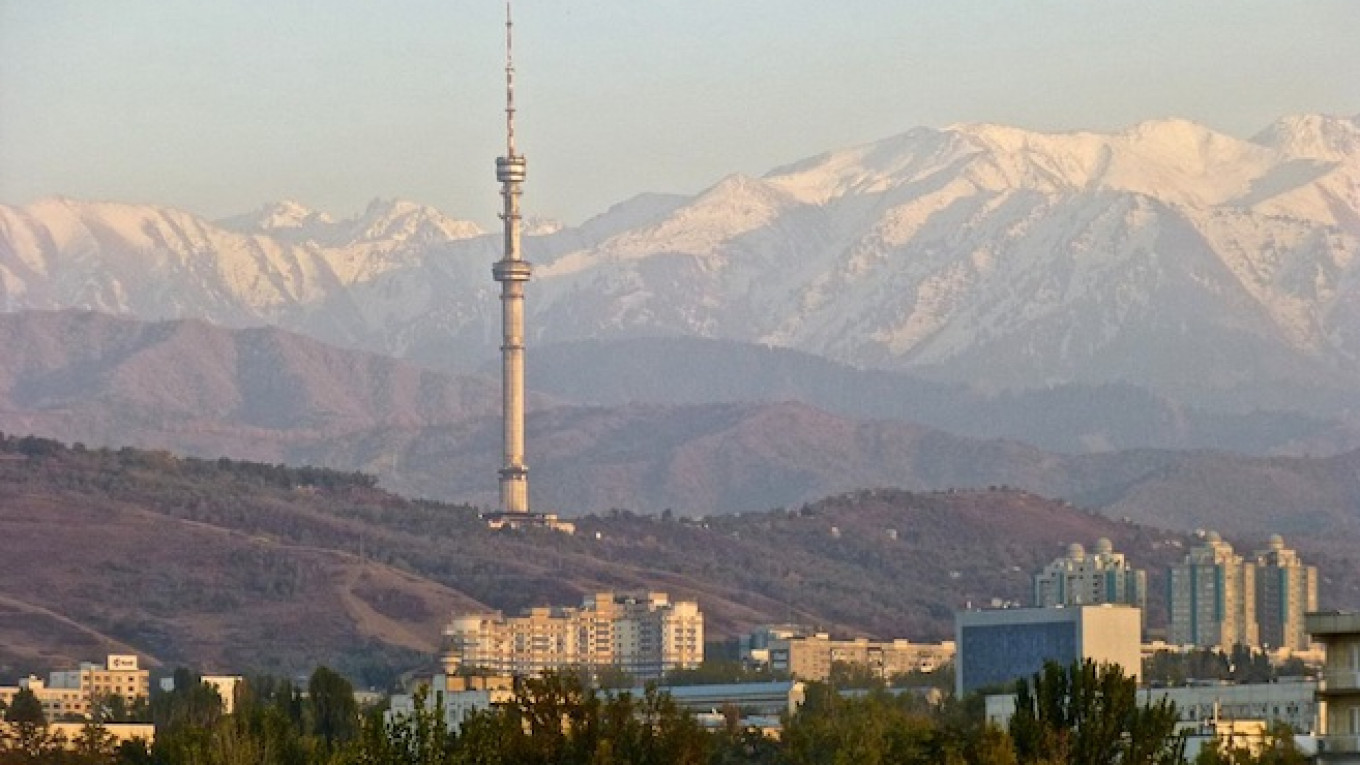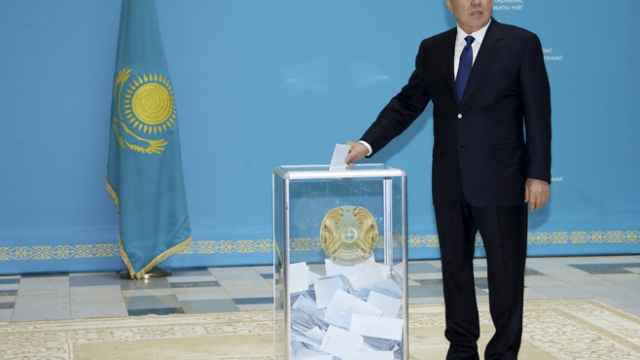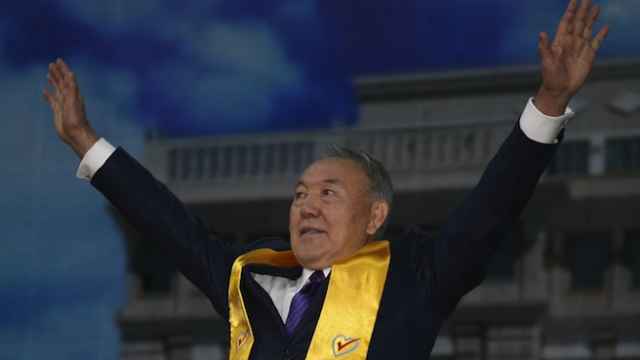Originally published by EurasiaNet.org.
Kazakhstan’s Constitutional Council has struck down a controversial law that would have outlawed the “propaganda” of homosexuality to minors, amid signs the legislation was damaging the country’s bid to host the Winter Olympics.
The law was “not in line with the constitution of the Republic of Kazakhstan,” the Vlast.kz website quoted the Constitutional Council (which rules on the legality of legislation) as saying.
The law governed “the protection of children from information causing damage to their health and development." It was passed by parliament in February. The council struck down the law because of unclear wording rather than human rights concerns, the Vlast.kz report said.
The announcement came after a group of household-name sports stars urged the International Olympic Committee (IOC) to reject Kazakhstan’s bid to host the Winter Games in Almaty in 2022, arguing that the law outlawing the “propaganda” of homosexuality to minors was incompatible with Olympic principles of equality.
“In light of Kazakhstan’s aspirations to host the 2022 Olympic Winter Games and their recent consideration of legislation prohibiting ‘propaganda of non-traditional sexual orientation,’ we urge the IOC to reiterate to Kazakh authorities that discrimination with regard to sexual orientation is incompatible with belonging to the Olympic movement,” the sportsmen and women said in the open letter to IOC chairman Thomas Bach, published by the Athlete Ally group, which fights homophobia in sport.
The 27 signatories included Olympic medalists and stars who have excelled in sports ranging from tennis, rowing and wrestling to snowboarding, speed skating and swimming.
“Athletes Pressure Olympics to Take a Stand on Kazakhstan's Anti-Gay Legislation — no way should the Olympics be there,” tweeted one of its most famous signatories, U.S. tennis player Martina Navratilova (who married her long-term lesbian partner last year), on May 15 after a report on the outcry was published in The Huffington Post.
Kazakhstan’s Constitutional Court quietly struck the law down three days later, the Informburo.kz news site said, but the ruling was not reported until May 26.
Choosing Almaty as host city for the games “would directly undermine the IOC’s own Olympic Charter, which bars discrimination based on sexual orientation,” the letter remarked.
The legislation targeting “propaganda” of homosexuality to minors in Kazakhstan (which has previously come under fire for failing to protect the rights of the LGBT community) was similar to a Russian law adopted in 2013, which caused an outcry during Sochi’s hosting of the Winter Olympics last year.
Kazakhstan’s government has eagerly promoted Almaty’s bid to host the games, which the administration of President Nursultan Nazarbayev sees as an opportunity to raise the country’s international profile, though critics dismiss it as a costly vanity project that risks spawning the type of rampant corruption that marred the Sochi games.
Almaty’s chances of selection success have risen as other bidders have pulled out, leaving Beijing as the only rival. The IOC is due to make the final decision on the host city on July 31.
It is likely no coincidence that Kazakhstan’s Constitutional Council has now struck down the controversial law that was damaging Almaty’s bid. The decision could not have occurred in Kazakhstan’s top-down political system without a nod from Nazarbayev.
A Message from The Moscow Times:
Dear readers,
We are facing unprecedented challenges. Russia's Prosecutor General's Office has designated The Moscow Times as an "undesirable" organization, criminalizing our work and putting our staff at risk of prosecution. This follows our earlier unjust labeling as a "foreign agent."
These actions are direct attempts to silence independent journalism in Russia. The authorities claim our work "discredits the decisions of the Russian leadership." We see things differently: we strive to provide accurate, unbiased reporting on Russia.
We, the journalists of The Moscow Times, refuse to be silenced. But to continue our work, we need your help.
Your support, no matter how small, makes a world of difference. If you can, please support us monthly starting from just $2. It's quick to set up, and every contribution makes a significant impact.
By supporting The Moscow Times, you're defending open, independent journalism in the face of repression. Thank you for standing with us.
Remind me later.






